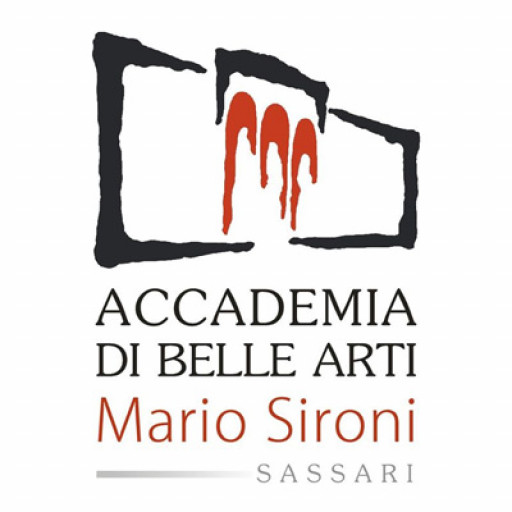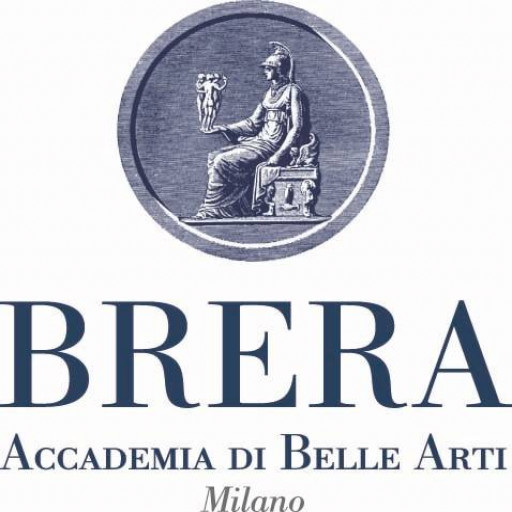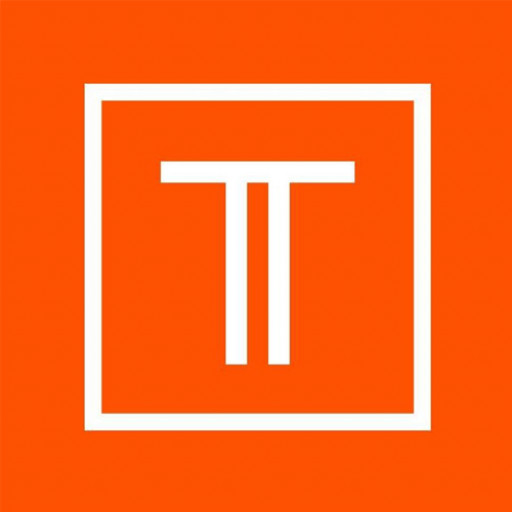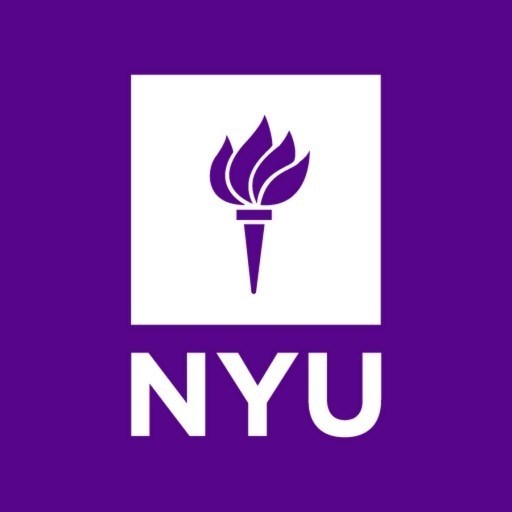Photos of university / #rpiunion
The Bachelor of Science in Games and Simulation Arts and Sciences at Rensselaer Polytechnic Institute offers students a comprehensive education in the design, development, and analysis of interactive digital media. This interdisciplinary program combines elements of computer science, art, design, and engineering to prepare students for careers in the rapidly evolving fields of game development, virtual reality, simulation, and digital entertainment. Students in this program acquire technical skills in programming, graphics, and system design while also developing creativity, storytelling abilities, and a strong understanding of user experience.
The curriculum emphasizes hands-on projects and collaborative work, allowing students to apply theoretical knowledge to real-world scenarios. Coursework includes topics such as game design, computer graphics, artificial intelligence, physics simulation, human-computer interaction, and interactive media. The program also offers opportunities to explore emerging technologies like augmented reality, virtual reality, and 3D modeling. Through a combination of lectures, laboratories, and project-based courses, students build a portfolio of work that demonstrates their ability to create engaging and innovative digital experiences.
Students are encouraged to participate in internships, research projects, and industry collaborations to gain practical experience and build professional networks. The program prepares graduates for employment in game studios, simulation companies, entertainment technology firms, research institutions, and entrepreneurial ventures. Additionally, the program fosters critical thinking, problem-solving, and interdisciplinary collaboration skills that are essential in today's technology-driven world. Graduates leave well-equipped to contribute to the development of immersive digital environments, interactive entertainment, and advanced simulation systems, making a meaningful impact across multiple industries.
First Year
Fall
- ARTS 1040 - Art for Interactive Media Credit Hours: 4
- COGS 2520 - Introduction to Game Design Credit Hours: 4
- CSCI 1100 - Computer Science I Credit Hours: 4
-
(See footnote 1)
- MATH 1010 - Calculus I Credit Hours: 4
-
or
- MATH 1500 - Calculus for Architecture, Management, and HASS Credit Hours: 4
-
(See footnote 2)
Spring
- MATH Elective Credit Hours: 4
(See footnote 3)
- BIOL 1010 - Introduction to Biology Credit Hours: 3
- CSCI 1200 - Data Structures Credit Hours: 4
- COGS 4320 - Game Mechanics Credit Hours: 4
Second Year
Fall
- HASS Core Elective Credit Hours: 4
- Concentration Course Credit Hours: 4
- COMM 4220 - Character and Story for Games Credit Hours: 4
- PHYS 1100 - Physics I Credit Hours: 4
Spring
- HASS Core Elective Credit Hours: 4
- Concentration Course Credit Hours: 4
- Concentration Course Credit Hours: 4
- COMM 1600 - History and Culture of Games Credit Hours: 4
Third Year
Fall
- HASS Core Elective Credit Hours: 4
- Concentration Course Credit Hours: 4
- Concentration Course Credit Hours: 4
- ARTS 4520 - Game Development I Credit Hours: 4
-
or
- COGS 4520 - Game Development I Credit Hours: 4
-
or
- CSCI 4520 - Game Development Credit Hours: 4
Spring
- HASS Core Elective Credit Hours: 4
- Concentration Course Credit Hours: 4
- Concentration Course Credit Hours: 4
- ARTS 4540 - Game Development II Credit Hours: 4
-
or
- COGS 4540 - Game Development II Credit Hours: 4
-
or
- CSCI 4540 - Game Development II Credit Hours: 4
Fourth Year
Fall
- HASS Core Elective Credit Hours: 4
- Concentration Course Credit Hours: 4
- Free Elective Credit Hours: 4
- ARTS 4510 - Experimental Game Design Credit Hours: 4
Spring
- IHSS 4xxx GSAS Research Project Credit Hours: 4
- Concentration Course Credit Hours: 4
- Free Elective Credit Hours: 4
- Free Elective Credit Hours: 4
Footnotes
- Students with sufficient programming background may substitute any other Computer Science course.
- MATH 1010 Calculus I is required for all concentrations with the exception of EART and MGMT.
- A specific Math Option is required for the Computer Science and Cognitive Science concentrations–all other concentrations may choose any MATH course. The Math Option for Computer Science and Cognitive Science concentrations is: MATH 4030 Computability and Logic (cross-listed with PHIL 4420), OR any MATH or MATP course at the 2000-level or higher (except Math 2800).
Concentrations
Cognitive Science
- CSCI 2300 - Introduction to Algorithms Credit Hours: 4
- CSCI 4150 - Introduction to Artificial Intelligence Credit Hours: 4
- COGS 2120 - Introduction to Cognitive Science Credit Hours: 4
-
or
- PHIL 2120 - Introduction to Cognitive Science Credit Hours: 4
-
or
- PSYC 2120 - Introduction to Cognitive Science Credit Hours: 4
- PHIL 2130 - Introduction to Philosophy of Science Credit Hours: 4
-
or
- IHSS 1140 - Minds and Machines Credit Hours: 4
- PHIL 4260 - Philosophy of Artificial Intelligence Credit Hours: 4
-
or
- PHIL 4440 - Knowledge and Rationality Credit Hours: 4
-
or
- PHIL 4480 - Metaphysics and Consciousness Credit Hours: 4
-
or PHIL 4xxx Philosophy of Cognitive Science Credit Hours: 4
- PSYC 4320 - Behavioral Neuroscience Credit Hours: 4
- PSYC 4370 - Cognitive Psychology Credit Hours: 4
- PSYC 4410 - Sensation and Perception Credit Hours: 4
-
or PSYC 4xxx Structure of Language Credit Hours: 4
- PSYC 4510 - Cognitive Modeling Credit Hours: 4
-
or
- COGS 4410 - Programming for Cognitive Science and Artificial Intelligence Credit Hours: 4
Computer Science
- CSCI 4xxx Game AI
- COGS 4550 - Game Architecture Credit Hours: 4
- CSCI 2200 - Foundations of Computer Science Credit Hours: 4
- CSCI 2300 - Introduction to Algorithms Credit Hours: 4
- CSCI 2500 - Computer Organization Credit Hours: 4
- CSCI 4210 - Operating Systems Credit Hours: 4
- CSCI 4430 - Programming Languages Credit Hours: 4
- CSCI 4440 - Software Design and Documentation Credit Hours: 4
- ECSE 4750 - Computer Graphics Credit Hours: 3
-
or CSCI 4xxx Three Dimensional Computer Graphics Credit Hours: 4 or CSCI 6xxx Advanced Computer Graphics Credit Hours: 3
Electronic Arts
- ARTS 1010 - Music and Sound Credit Hours: 4
-
or
- ARTS 1030 - Digital Filmmaking Credit Hours: 4
- ARTS 1020 - Media Studio: Imaging Credit Hours: 4
- ARTS 1200 - Basic Drawing Credit Hours: 4
- ARTS 2040 - Intermediate Digital Imaging Credit Hours: 4
-
or
- ARTS 2060 - Fundamentals of Animation Credit Hours: 4
- ARTS 2530 - Art History I: From Paleolithic to Renaissance Credit Hours: 4
- ARTS 2540 - The Multimedia Century Credit Hours: 4
- ARTS 4020 - Advanced Digital 3-D Projects Credit Hours: 4
- ARTS 4060 - Animation I Credit Hours: 4
- ARTS 4070 - Animation II Credit Hours: 4
Human-Computer Interaction
- COMM 1510 - Introduction to Communication Theory Credit Hours: 4
- COMM 2610 - Introduction to Visual Communication Credit Hours: 4
- COMM 4180 - Studio Design in Human-Computer Interaction Credit Hours: 4
- COMM 4420 - Foundations of HCI Usability Credit Hours: 4
- COMM 4470 - Information Design Credit Hours: 4
- COMM 4690 - Interface Design: Hypermedia Theory and Application Credit Hours: 4
- COMM 4710 - Communication Design for the WWW Credit Hours: 4
- COMM 4770 - User-Centered Design Credit Hours: 4
-
or
- COMM 4520 - Information Architecture Credit Hours: 4
- PSYC 2220 - Human Factors in Design Credit Hours: 4
Management
- ECON 1200 - Introductory Economics Credit Hours: 4
- MGMT 1100 - Introduction to Management Credit Hours: 4
- MGMT 1260 - Business Law and Ethics Credit Hours: 4
- MGMT 2300 - Fundamentals of Accounting for Decision Making Credit Hours: 4
- MGMT 2320 - Managerial Finance Credit Hours: 4
- MGMT 2430 - Marketing Principles Credit Hours: 4
- MGMT 2510 - Microcomputers and Applications Credit Hours: 4
- MGMT 4850 - Organizational Behavior in High Performance Organizations Credit Hours: 4
- MGMT 4870 - Strategy and Policy Credit Hours: 4
Writing
- COMM 4xxx - Writing Internship Credit Hours: 4
- HASS 4xxx - HASS 4000-level Elective Credit Hours: 4
- COMM 4966 – Video Game Level Design Credit Hours: 4
- COMM 1510 - Introduction to Communication Theory Credit Hours: 4
- COMM 4560 - Media and Popular Culture Credit Hours: 4
- COMM 4240 - Writing for Games I Credit Hours: 4
- COMM 4250 - Writing for Games II Credit Hours: 4
- COMM 4940 - Communication Studies Credit Hours: 1 to 6
- WRIT 2310 - Creative Writing: Poetry Credit Hours: 4
Requirements
- Test of English as a Foreign Language (TOEFL) is required for all non-native English speakers. Applicants who have completed three or more years of secondary education in the U.S. may request an exemption by emailing Rensselaer Admissions. Rensselaer expects a minimum TOEFL score of at least 88 iBT, or 570 PBT. For students not able to take the TOEFL, the International English Language Testing System (IELTS) or the Pearson’s Test of English (PTE) may be substituted for the TOEFL. An IELTS score of at least 7.0 or a PTE score of at least 59 is expected. Only the academic format is accepted.
- In general, we look for students who have earned A’s and B’s in a challenging curriculum. We pay close attention to exactly which classes you have taken and how you have performed in them, instead of focusing on a certain GPA.
- Portfolio
- Request a letter of recommendation from a counselor or teacher.
A recommendation provided by a math or science teacher who knows you well is preferred. - Remit the $70 application fee.
Portfolio Requirements
Applicants are required to submit a statement of intent and a portfolio that demonstrates creative excellence and preparation for interdisciplinary studies in games. The portfolio should contain up to 10 examples representing what the applicant considers to be their best work in any medium.
Successful portfolios may include any of the following:
- Games created by the applicant, either digital or non-digital
- Interactive digital media and artworks
- 3D models
- Animation, either digital or non-digital
- Visual art and design in any media (drawing, painting, sculpture, photography, video, etc)
- Audio recordings
- Creative writing samples
- Game mods
- Level designs
- Computer programs (including programs other than games), written by the applicant that demonstrate originality and problem-solving ability
Notes for specific media types
- Digital games, Mods, Levels, and Interactive Media: Windows, Mac, or Linux compatible. Include:
- All required files for your game to run
- Detailed installation and play instructions
- Written description of the game, tools used to create it, and your role if it was a team project
- Image and/or video documentation of the game
- Playable Physical Games (board games, card games, etc):
- Submit image and/or video documentation
- Include written description of the game and rules
- Images: still images in JPG or PNG format.
- Video: Video DVD or digital files on CD-ROM or Data DVD
- Recommended resolution: 640x480 or higher
- Recommended formats for video files: AVI, Quicktime, WMV, Flash, or Ogg/Theora
- Recommended compression: for AVI, Quicktime, and WMV: MPEG-4 or H.264
- Audio: MP3 or Ogg/Vorbis
Incoming Students (Freshmen and External Candidates)
Submitting a portfolio is optional for students applying as freshmen, but should you decide to include one with your application Rensselaer strongly recommends that you use the online portfolio system to upload your portfolio with digital files. The online portfolio link can be found here https://rpi.slideroom.com/#/Login and supports the following formats for each media type:
- Images (5MB each: jpg, png, gif)
- Videos (60MB each: mov, wmv, flv)
- PDF (10MB each: pdf)
- Audio (10MB each: mp3)
If the online portfolio system does not support your desired submission format, applicants can also submit their digital portfolio on CD or DVD. Do not submit original work with your application. Your CD or DVD portfolio should be mailed to:
Rensselaer Admissions
Undergraduate Programs
Rensselaer Polytechnic Institute
110 8th Street
Troy, New York 12180-359
Scholarships
- Rensselaer Grant
- Rensselaer Leadership Award
- Rensselaer Merit Scholarship (awarded prior to the 2009-2010 academic year)
- Rensselaer Medal Scholarship
- Rensselaer Room & Board Scholarship
The Games and Simulation Arts and Sciences program at Rensselaer Polytechnic Institute is an interdisciplinary undergraduate degree that explores the art, science, and technology of game design, simulation development, and interactive media. The curriculum is designed to provide students with a comprehensive understanding of the creative, technical, and theoretical aspects of game creation and simulation. Students are introduced to a broad range of topics including computer graphics, programming, narrative development, user experience, virtual environments, and multimedia production. The program emphasizes hands-on experience through project-based coursework, collaborative team projects, and opportunities for internships and industry partnerships.
students gain skills in designing engaging gameplay, developing realistic simulations, and understanding the psychological and social impacts of gaming and interactive media. The program encourages innovation and experimentation, supporting students in exploring new forms of digital entertainment and interactive storytelling. Faculty members are experts in fields such as computer science, digital arts, human-computer interaction, and media studies, providing a multidisciplinary teaching approach. The program prepares graduates for careers in video game development, simulation engineering, virtual reality and augmented reality applications, multimedia entertainment, and interactive experience design.
Moreover, students have access to state-of-the-art labs, game development studios, and collaborative spaces that foster creativity and technical development. Rensselaer’s proximity to New York City and Silicon Valley also offers valuable networking and internship opportunities within the thriving tech and entertainment industries. The program aims to produce graduates who are capable of designing innovative interactive experiences, advancing game technology, and contributing to the evolving landscape of digital media. Overall, the Games and Simulation Arts and Sciences program combines artistic vision with technical expertise, preparing students for diverse roles in the rapidly expanding fields related to games, simulations, and interactive media.








